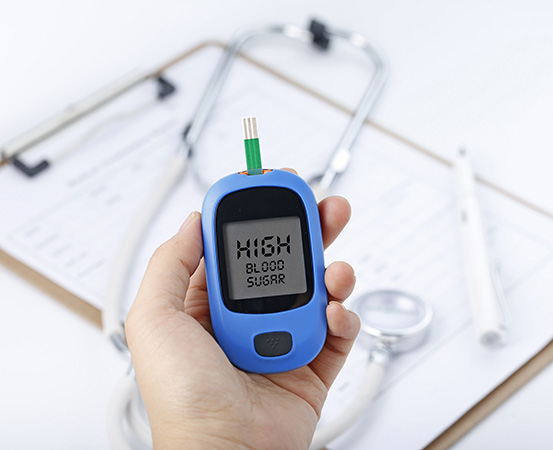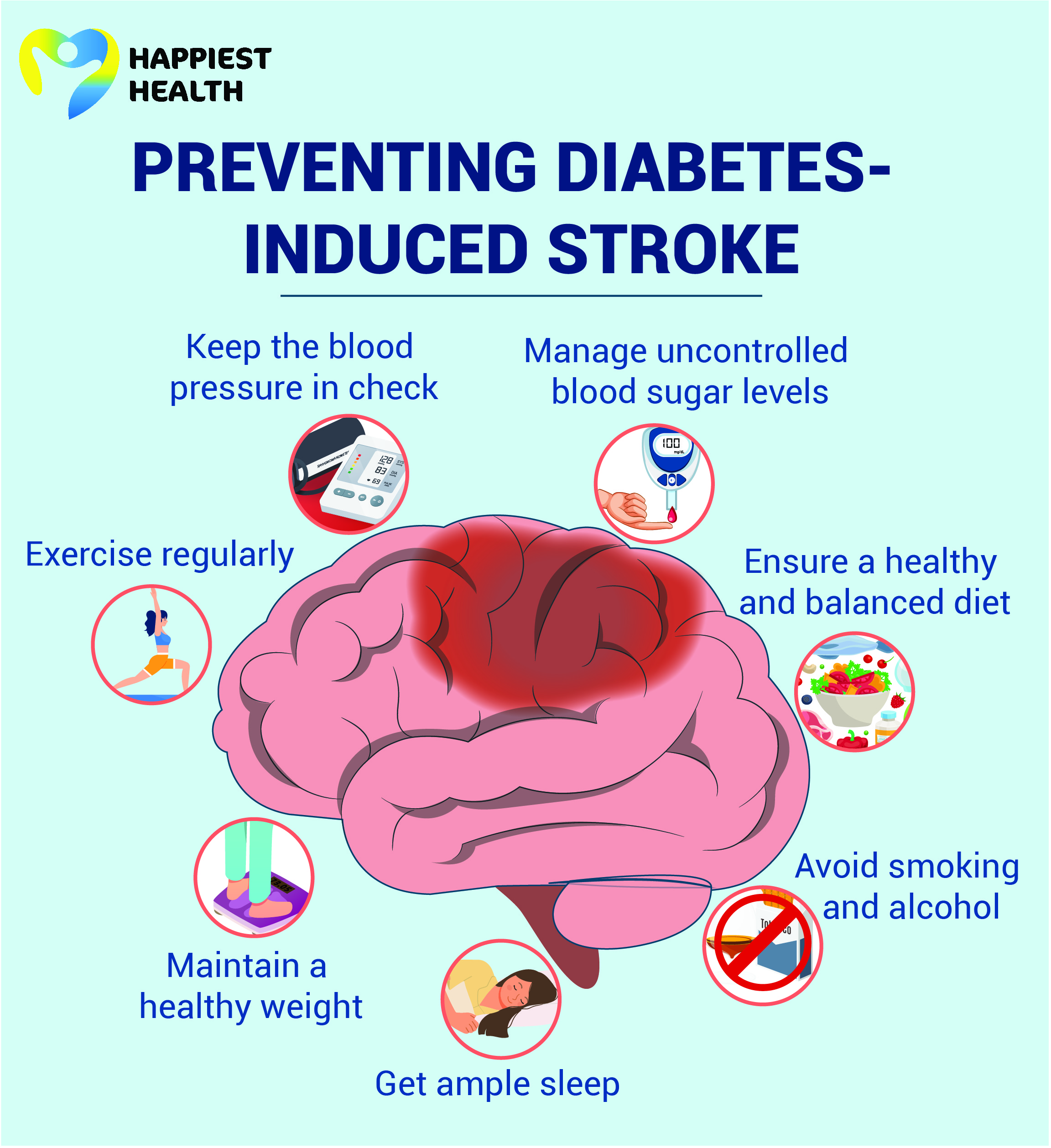
People with chronic diabetes are at higher risk of stroke. They are also likely to have a stroke earlier than those of the same age group without diabetes. Recurrent strokes are also more common in such people, making diabetes one of the main reasons for stroke-related mortalities across the globe.
What is a stroke?
A stroke occurs when there is a disruption in the blood supply to the brain. Dr Sanjay Pandey, HOD, neurology department, Amrita Hospital, Faridabad, explains that it is caused due to damage or blockage in carotid arteries that supply blood and oxygen to the brain. According to a review article published in Journal of Stroke, people with diabetes may have poorer post-stroke outcomes and a higher risk of stroke recurrence than those without diabetes.
Types of Stroke
1. Ischemic Stroke
Dr Thejaswi N Marla, cardiothoracic vascular Surgeon, Fortis Malar Hospital, Chennai, explains that in an ischemic stroke, there is a blockage or clot in blood vessels supplying oxygenated blood to the brain. This causes poor blood supply to the brain and affects brain function due to insufficient oxygen. Diabetes increases the risk of ischemic stroke by accelerating atherosclerosis (narrowing of arteries due to plaque formation), which makes the blood more prone to clotting.
2. Hemorrhagic Stroke
This stroke occurs when there’s a rupture in the blood vessels, informs Dr Marla. Hemorrhagic stroke leads to bleeding in or around the brain. Hypertension can also lead to hemorrhagic stroke as it can damage blood vessels inside the brain, resulting in rupture and bleeding in the brain between the skull and the brain tissue.
The link between diabetes and stroke
Dr Aditi Chopra, consultant, diabetes and endocrinology, Manipal Hospital, Old Airport Road, Bangalore, explains, “The primary way diabetes increases the risk of stroke is through atherosclerosis. When there is excess blood glucose circulating through the blood vessels, it ends up damaging the inner arterial lining. This could accelerate plaque formation and excess fat deposition, leading to the narrowing of the artery. This could directly increase the risk of strokes because of the high chances of clot formation. When atherosclerosis affects the arteries supplying blood to the brain (carotid arteries), it can significantly increase the risk of a stroke.”
According to the American Stroke Association, people with diabetes are twice as likely to have a stroke as people without diabetes.
Dr Marla shares that in people with diabetes, stroke can be caused by hyperglycemia-associated blood viscosity. He adds, that when people have high blood sugar, the blood becomes thick and more viscous. This makes it hard for the heart to pump blood and increases the risk of clot formation. Clots can block blood vessels in the brain, which can trigger a stroke.
Older people are at greater risk of stroke, says Dr Pandey. Other factors include hypertension, high cholesterol levels, and diabetes-related complications like neuropathy, diabetic retinopathy, or diabetic nephropathy.
“People with both type 1 and type 2 have the same possibility of developing a stroke”, says Dr Pandey. However, those with type 1 diabetes are at greater risk of having a stroke early since they have had diabetes for a longer period.
The common signs of brain stroke include drooping of facial muscles, speech difficulty, disorientation, and muscle weakness, especially in arms, caused mainly due to neural damage in the brain. If these symptoms are observed in a disoriented person, it could be a stroke and swift medical attention is crucial. These typical signs of a stroke are called FAST (facial drooping, arm weakness, speech difficulties and time to call for medical help).
Takeaways
People with diabetes are at a higher risk of stroke. Managing blood sugar levels is a must. This, along with a healthy diet, avoiding smoking and alcohol and regulating blood pressure can help reduce the risk of diabetes-induced stroke.


















